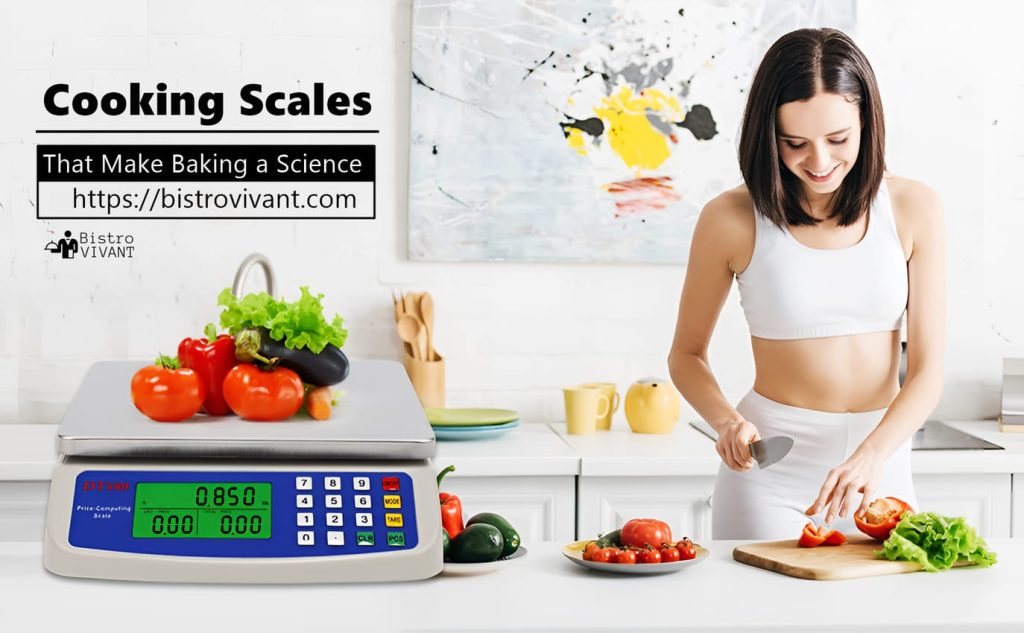Just as precision is key in science, accurate measurements are necessary in baking to achieve perfect results. Using cooking scales not only ensures your ingredients are weighed accurately but also helps you avoid the pitfalls of imprecise measurements that can ruin your baked goods. By incorporating a reliable scale into your kitchen, you can elevate your baking game and create consistently delicious treats. Explore the Best Kitchen Scale | AWScales to find the perfect tool for your baking needs and transform your culinary creations!
Key Takeaways:
- Precision: Cooking scales provide accurate measurements that are vital for replicating recipes and achieving consistent results in baking.
- Efficiency: Using a scale simplifies the process of measuring ingredients, allowing bakers to mix without the need for multiple measuring cups and spoons.
- Adaptability: Scales accommodate a variety of ingredients, enabling bakers to easily adjust recipes and scale up or down based on desired serving sizes.
The Importance of Precision in Baking
While baking may seem like a simple task, the truth is that precision is crucial for achieving the desired results. Accurate measurements can be the difference between a fluffy cake and a dense brick. By using cooking scales, you ensure that every ingredient is measured with consistency, elevating your baking from a mere art to a precise science. This attention to detail not only enhances the flavor and texture of your baked goods but also boosts your confidence in the kitchen.
Understanding Measurements
Baking is importantly chemistry, which means each ingredient plays a specific role in the final product. When you measure your ingredients using volume, such as cups and teaspoons, you may encounter inconsistencies due to variable packing densities. By relying on weight measurements, you ensure that your ingredients are always consistent, leading to reliable results every time you bake.
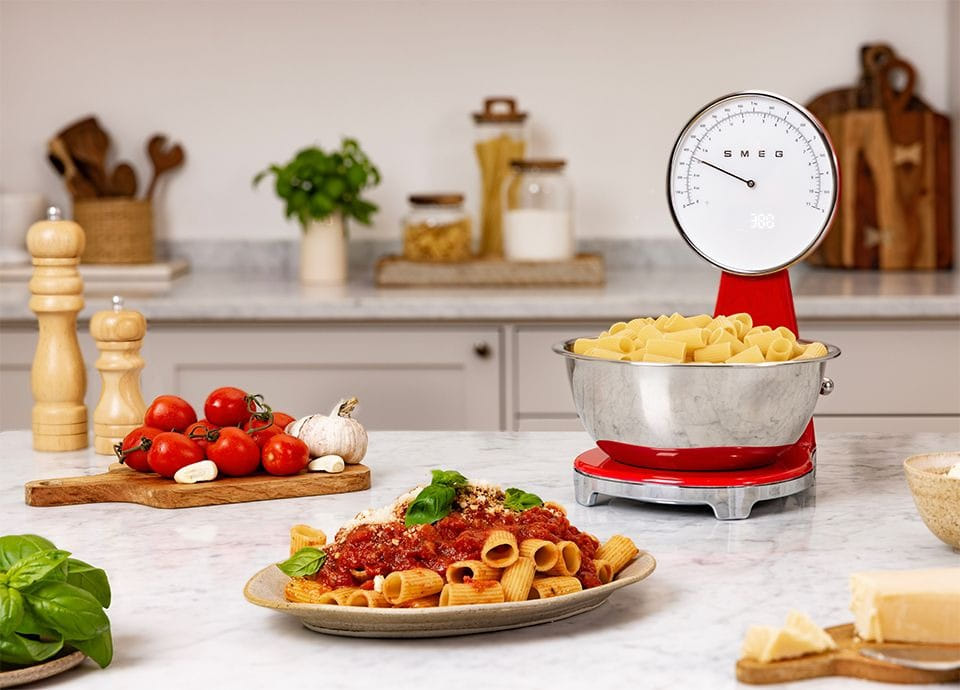
The Role of Weight in Ingredient Selection
Any experienced baker understands that the weight of ingredients can significantly influence the texture and flavor of your baked goods. In fact, using weight-based measurements allows you to be more precise with recipes that are sensitive to ingredient ratios, such as pastries and breads. A small variation in weight can result in over or under-hydrated dough, leading to disappointing outcomes.
Understanding how important ingredient weight is can greatly improve your baking experience. If you substitute by volume instead of weight, you risk ruining recipes that depend on precise ratios, especially in delicate baked goods. For instance, too much flour can lead to dry, crumbly cakes, while too little can result in collapse. Using a scale to measure ingredients accurately prevents these potential disasters and helps you achieve consistently excellent results with every bake.
Types of Cooking Scales
Some of the most popular types of cooking scales include:
- Digital Scales
- Mechanical Scales
- Kitchen Scales
- Postal Scales
- Balance Scales
Assume that each type of scale has its unique features catering to different baking needs.
| Type | Description |
| Digital Scales | Uses electronic sensors for precise measurements. |
| Mechanical Scales | Operates using springs and balances for weight. |
| Kitchen Scales | Designed specifically for cooking purposes. |
| Postal Scales | Used primarily for weighing mail and packages. |
| Balance Scales | Measures weight by comparing masses of known weights. |
Digital Scales
Scales equipped with digital displays offer you the convenience of measuring ingredients with high accuracy, often down to the gram. With features like tare function, they allow you to zero out the weight of containers easily. These scales are perfect for serious bakers who require precision in their measurements.
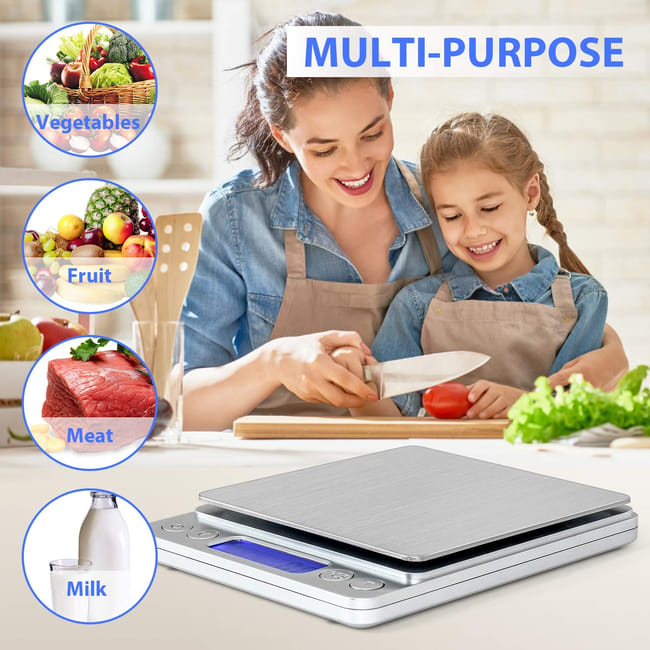
Mechanical Scales
Types of mechanical scales use springs and levers to gauge weight, providing results without the need for batteries or electricity. You may appreciate their reliability and repairability compared to digital counterparts, making them ideal for those who prefer classic tools in the kitchen. Plus, mechanical scales don’t rely on electronics, meaning you won’t face the risk of power failure, yet they require careful calibration to ensure accurate readings every time you measure. Understanding these beneficial aspects will significantly enhance your baking experiences.
Features to Consider When Choosing a Scale
All cooking scales are not created equal. When deciding on a scale for your baking needs, you should consider key features that can significantly enhance your measuring experience. Look for attributes such as capacity, weight range, tare functionality, and ease of use. Each of these features can impact the accuracy and convenience of your baking process, ultimately allowing you to achieve professional-level results from the comfort of your kitchen.
Capacity and Weight Range
The capacity and weight range of a scale are crucial factors to consider. You’ll want a scale that can handle your largest baking projects, whether that’s measuring out flour for a big batch of cookies or weighing a large loaf of bread. Many scales can measure up to 11 pounds (5 kg) or more, but for more versatility in your recipes, look for options that support both metric and imperial measurements.
Tare Functionality
With tare functionality, you can easily measure multiple ingredients without needing to use separate bowls. This feature allows you to reset the scale to zero after placing a container on it, letting you accurately measure just the ingredient you’re adding. It’s an vital tool for reducing mess and streamlining your baking process.
When using a tare function, you can eliminate the risk of inaccurate measurements from the weight of your containers. This feature is especially useful when you’re layering ingredients or using multiple ingredients in one bowl. Just remember to always reset the scale to zero after placing your container on it; this ensures you have completely accurate measurements. By maximizing this function, your baking can become more precise and your recipes more reliable, leading to better outcomes every time.
How to Use a Cooking Scale Effectively
To ensure precise measurements in your baking, mastering the use of a cooking scale is vital. Begin by placing your ingredients directly on the scale’s platform for accurate results. Always tare the scale to zero with your bowl or container before adding your ingredients, and remember to check the units of measurement to suit your recipe requirements.
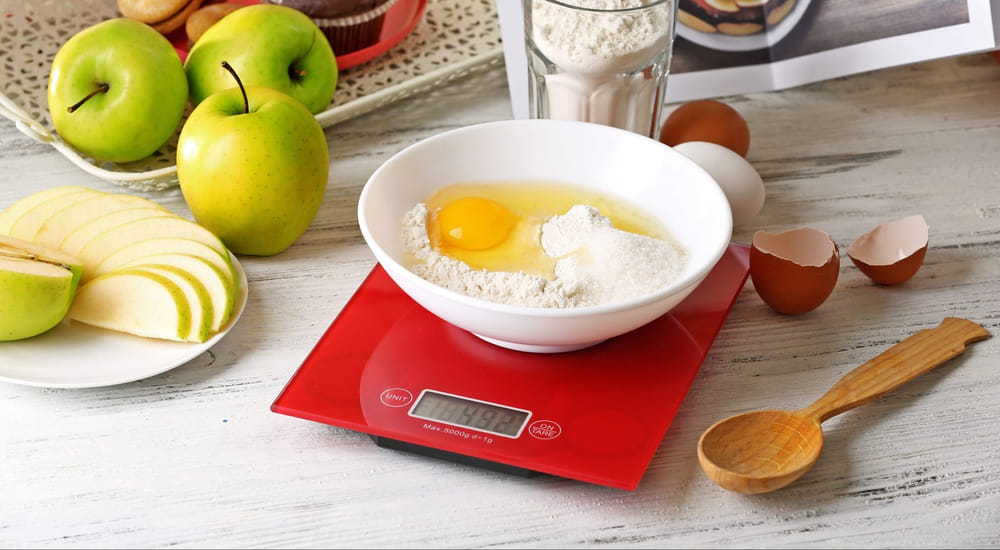
Step-by-Step Guide
Effectively using a cooking scale can be broken down into the following steps:
| Step | Description |
| 1 | Place the scale on a flat, stable surface. |
| 2 | Tare the scale with your container or bowl. |
| 3 | Add your ingredient until you reach the desired weight. |
| 4 | Repeat for additional ingredients, resetting the tare as needed. |
Common Mistakes to Avoid
To enhance your baking experience, it’s important to steer clear of common pitfalls associated with using a cooking scale.
Common mistakes include not taring the scale before adding your ingredients, measuring in the wrong units, or using an unlevel surface. These errors can lead to incorrectly proportioned ingredients, ultimately affecting your baked goods’ texture and taste. Always ensure your scale is set to the correct measurement system and consistent weight for each ingredient. Note, precision is key to achieving perfect results.
Enhancing Your Baking with Scales
Despite the myriad of gadgets available in kitchens today, using precise cooking scales is one of the most effective ways to elevate your baking game. By measuring your ingredients accurately, you ensure that every cake, cookie, and bread turns out consistently delicious and perfectly textured. Scales allow you to follow recipes with confidence, and they enable you to experiment with different ingredients without the fear of subpar results.
Recipe Adjustments
Enhancing your baking doesn’t just involve following the recipe to a letter; it also means being able to make thoughtful adjustments. With scales, you can accurately modify ingredient amounts based on your preferences or dietary needs, allowing for more creative freedom while maintaining the integrity of the baked good. Whether you’re reducing sugar, adding cocoa powder, or increasing flour for a fluffier texture, your scales ensure that your adjustments remain precise.
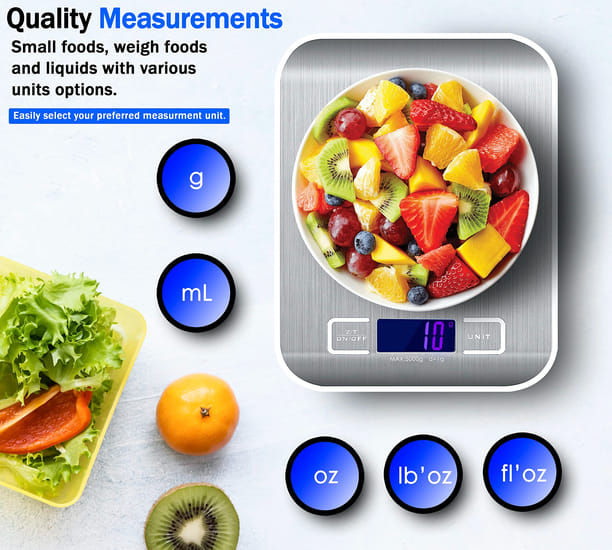
Consistency in Results
Your baking will shine with the consistency that scales bring to your kitchen. By measuring your ingredients each time, you eliminate the variability caused by using cups or spoons, which can lead to errors in ratios and flavors. This precision provides a framework that helps you replicate successful recipes, making it easier to serve delectable treats time and time again.
Consistency in your baking is key to developing your skills and confidence. By using scales, you can eliminate guesswork, resulting in a stronger understanding of how ingredient ratios affect the final product. Each time you weigh out flour, sugar, or butter, you are creating a repeatable process that yields reliable outcomes. This focus on precision also facilitates better comprehension of baking fundamentals, allowing you to discover why specific recipes work. In the end, consistency in your measurements means consistent quality in your results—making your baked goods not just delicious but also dependable.
Maintaining and Calibrating Your Scale
Many bakers overlook the importance of maintaining and calibrating their scales, but doing so can significantly enhance your baking precision. Regular maintenance will ensure accurate measurements, helping you achieve the best results. Consider investing in a High Capacity Baking Scale for reliable performance. A well-cared-for scale will last longer and give you consistent results, turning baking into a true science.
Cleaning and Care Tips
Calibrating your scale is necessary not just for accuracy but also for maintaining its longevity. Your scale should be kept clean and handled with care. Here are some necessary tips for cleaning and maintaining your scale:
- Wipe down the surface with a damp cloth after each use to remove any residue.
- Avoid using abrasive cleaners that can scratch the surface.
- Store your scale in a dry, safe place when not in use.
Any neglect in cleaning can affect your scale’s performance.
Calibration Techniques
For optimal measuring accuracy, regular calibration of your scale is crucial. Start by using certified weights that you can purchase or rent to calibrate your scale accurately. Additionally, most high-quality scales offer an internal calibration feature that guides you through the process. It is advisable to calibrate your scale before important baking sessions or after moving it.
Calibration is not only about resetting your scale; it’s a way to ensure precision in your measurements. Failing to calibrate could lead to significant baking errors, which are detrimental to your recipes. Additionally, investing your time in this process will give you confidence in your baking. Always remember, a properly calibrated scale is necessary for achieving consistent and reliable results in your culinary creations.
Summing up
From above, it’s clear that investing in a reliable kitchen scale is vital for achieving precision in your baking. Accurate measurements can turn your baking from guesswork into a science, ensuring consistency and perfect results every time. By selecting a scale that fits your needs, you’ll elevate your culinary skills and enjoy better-baked goods. For expert recommendations, check out The 3 Best Kitchen Scales of 2024, Tested & Reviewed to find the perfect tool for your kitchen.
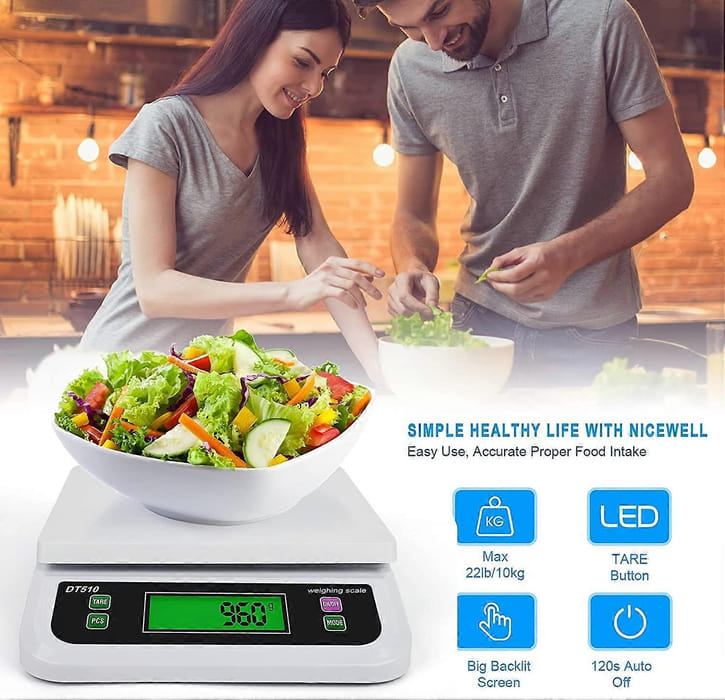
FAQ
Q: Why are cooking scales important for baking?
A: Cooking scales are crucial for baking because they provide precise measurements, ensuring that you add the correct amounts of ingredients. Baking is a science that relies heavily on chemical reactions, and even slight variations can lead to different results. Using a scale helps eliminate guessing and leads to consistently better outcomes in your baked goods.
Q: How do I choose the right cooking scale for baking?
A: When choosing a cooking scale for baking, look for features such as a tare function, which allows you to zero out the weight of containers, the ability to measure in both grams and ounces, and a capacity suitable for your baking needs. Digital scales are generally more accurate and easier to read than analog scales. Additionally, consider a scale with a large, flat surface for easy placement of bowls and ingredients.
Q: Can I use cooking scales for both baking and cooking?
A: Absolutely! Cooking scales are versatile tools that can be used for both baking and cooking. Measuring solids, liquids, and even small ingredients is easier when using a scale. For baking, precise measurements are important, but you can also benefit from using a scale when cooking to control portion sizes and achieve a balanced meal. Using a scale can enhance your culinary skills across various cooking styles.
 https://bistrovivant.com is a participant in the Amazon Services LLC Associates Program, an affiliate advertising program designed to provide a means for website owners to earn advertising fees by advertising and linking to Amazon (.com,.co.uk,.ca, etc.) and any other website that may be affiliated with the Amazon Service LLC Associates Program. As an Amazon Associate, I earn from qualifying purchases.
https://bistrovivant.com is a participant in the Amazon Services LLC Associates Program, an affiliate advertising program designed to provide a means for website owners to earn advertising fees by advertising and linking to Amazon (.com,.co.uk,.ca, etc.) and any other website that may be affiliated with the Amazon Service LLC Associates Program. As an Amazon Associate, I earn from qualifying purchases.

